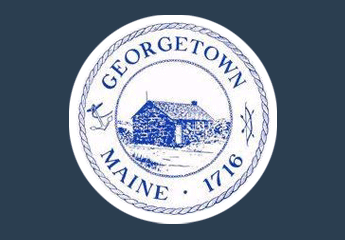A Brief Early History of Georgetown
Georgetown Island lies between the mouth of the and the on the . The Abenaki Indians called the island Erascohegan, meaning “good spear fishing”. , a fisherman from Bedfordshire, England, purchased it in 1649 from Chief Mowhotiwormet, commonly known as Chief Robinhood, for a hogshead of rum and some pumpkins. built the first permanent homestead on what eventually became known as ‘s Island.
The Kennebec River valley was attacked and burned in 1676 during King Philip’s , then again in 1689 at the outset of King William’s War, and was not resettled until after the 1713 Treaty of Portsmouth. The town of Newtown-on-Arrowsic was rebuilt in 1714 on the southern end of Arrowsic Island, which was incorporated in 1716 by the Massachusetts General Court as Georgetown-on-Arrowsic, named for Fort St. George. The town’s boundaries were extended to encompass Parker’s Island, Woolwich, and (including ). Abandoned during ‘s War and beleaguered during the French and Indian Wars, the region resettled slowly in the 1750s until peace was assured with the fall of Quebec in 1759. By 1841, all the other parts of Georgetown had been set off and incorporated as towns, leaving Parker’s Island with the sole claim to the ancient name.
Early on, about half of ‘s Island provided grazing land, and some residents raised livestock, producing butter and cheese. In 1858, there were two sawmills, a sail maker and a shipbuilder, but the merchant marine and fishing were the town’s principal occupations. Today, Georgetown is still home to many year ’round families engaged in fishing, building, boat building, art, and local businesses. The island is also a popular destination for summer residents and retirees. Recreational opportunities abound, including twelve conservation areas and
For more history and to access an amazing archive, please visit the Georgetown Historical Society on line: Georgetown Historical Society

